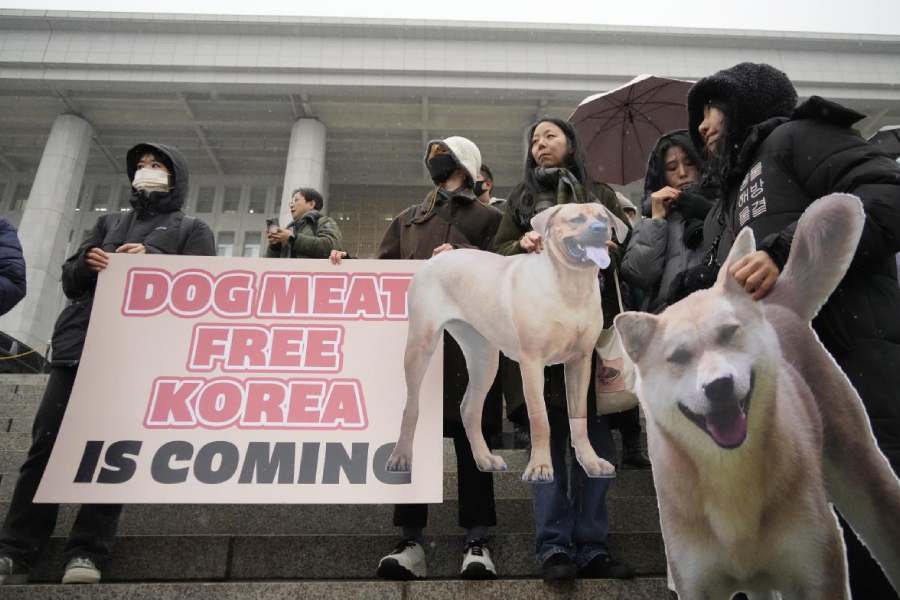The deceased lay wrapped in a cotton blanket, surrounded by white roses and hydrangea, angelic figurines and lit candles and incense. A wall-mounted screen displayed photographs of him. His 71-year-old companion, Kim Seon-ae, convulsed with tears as she bid farewell, caressing his head and face. Next door, young uniformed morticians prepared for his cremation.
The elaborate and emotional ritual was for a white poodle named Dalkong, who was nestled in a willow basket with his eyes still open.
“He was like a virus that infected me with happiness,” said Kim, who had lived with Dalkong for 13 years until he succumbed to heart disease. “We were family.”
Not long ago, South Korea often made global headlines — and raised the ire of animal rights groups — for its tradition of breeding dogs for meat. But in recent years, people here have gravitated toward pets, especially dogs. They are looking for companionship at a time when more South Koreans are choosing to stay single, childless or both. More than two-fifths of all households in the nation now consist of only one person.
The pandemic also did much to bring pets into homes, as people cooped up indoors adopted dogs and cats from shelters and the streets.
Now, one out of every four families in South Korea has a pet, up from 17.4 per cent in 2010, according to government estimates. Most of them are dogs.
“In this age of mistrust and loneliness, dogs show you what unconditional love is,” said Kim’s 41-year-old daughter, Kim Su-hyeon, who raised two dogs but has no plans for children. “A human child may talk back and rebel, but dogs follow you like you are the centre of the universe.”
Kim Kyeong-sook, 63, whose 18-year-old dachshund, Kangyi, was cremated on the same day as Dalkong, agreed. “When I left home, he saw me off at the door until it was closed behind me,” she said. “When I returned, he was always there, going crazy as if I were coming home from war overseas.”
The boom in pet services has changed the country’s urban landscape. Hospitals and shops catering to pets have become ubiquitous, while childbirth clinics have allbut disappeared, as South Korea’s birthrate has become the lowest in the world. In parks and neighbourhoods, strollers are more often than not carrying dogs. Online shopping malls say they sell morebaby carriages for dogs than for babies.
Politically, dogs have led to a rare case of bipartisanship in a country that is increasingly polarised. In January, lawmakers passed a law that banned the country’s centuries-old practice of breeding and butchering dogs for human consumption.
Now, dogs are familymembers that get splurged on.
Sim Na-jeong says she wears an old, $38 paddedjacket but has bought $150 jackets for Liam, a jindo she adopted from a shelter four years ago.
“Liam is like a child to me,” said Sim, 34, who does not plan to get married or have children. “I love him the way my mom loved me. I eat old food in the refrigerator, saving the freshest chicken breast for Liam.”
New York Times News Service










